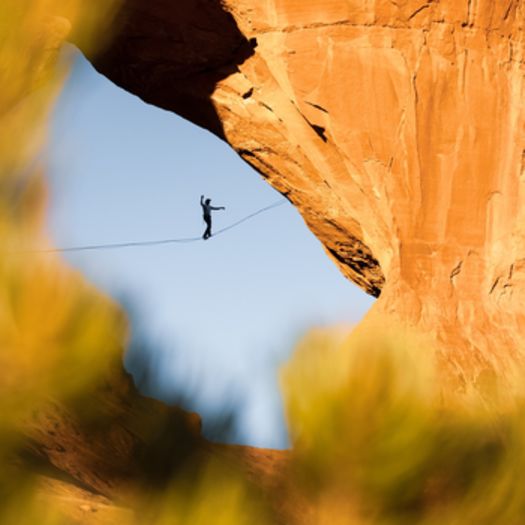Boondocking, or camping without hookups on public lands, is a beloved form of RVing that allows travelers to experience the great outdoors in its purest form. By venturing off the beaten path, you can discover remote, tranquil sites and reconnect with nature. However, this style of camping requires thoughtful preparation and a different approach than staying in traditional campgrounds. Go RVing talked to a variety of boondocking experts to gather these tips and tricks to get you started.

What is Boondocking and Why Do People Love It?
Boondocking, also known as dispersed camping, involves staying in undeveloped areas without access to potable water, electricity, or sewer hookups. It appeals to those seeking adventure, solitude, and unspoiled beauty. Unlike staying in RV parks or campgrounds, boondocking offers a more intimate connection with nature and often comes with stunning, secluded scenery. Travelers often describe the experience as a way to fully immerse themselves in the natural world while enjoying the comforts of their RV.
Things to Consider When Boondocking
- Regulations and Permits: Before heading out, research local rules and regulations to ensure your chosen site is legal. Many areas require permits, and some have seasonal closures to protect wildlife or restore habitats. For example, motor vehicle use maps can help identify where camping is permitted. The guides in the Colorado mountains recommend contacting local ranger districts for up-to-date information on closures or restrictions.
- Safety First: Staying safe while off-grid is essential. Pack a first-aid kit, jumper cables, and tools like a shovel and ax. The ax is particularly useful for chopping firewood, while jumper cables can help in case of unexpected vehicle issues. Additionally, ensure your RV is stabilized with tire chocks or stabilizers to prevent rolling, especially on uneven ground.
- Distance Requirements: To protect sensitive ecosystems, camp at least 100 feet from water sources and 150 feet from roadways. These distances help preserve natural vegetation and minimize human impact. Following these guidelines ensures you respect nature and avoid fines for camping in prohibited areas.
Preparing for Boondocking Adventures
- Power Supply: Off-grid power is a must. Portable generators are a reliable choice, but solar panels offer a quieter, eco-friendly alternative. For example, solar panels are now affordable, easy to install, and capable of powering most rigs independently. This setup not only saves fuel but also reduces noise pollution for a more serene camping experience.
- Water Management: Carry an ample water supply. Seasoned boondockers recommend bringing at least two six-gallon jugs to refill your RV’s water tank without needing to move camp. This strategy is especially useful for long stays, allowing you to refill water tanks in town and remain off-grid for extended periods.
- Organization: Use storage bins to organize your gear efficiently. Separate your cooking equipment, tools, and adventure gear to save time and space. For instance, one bin could hold a portable propane tank, used for cooking or outdoor showers, while another might store a compact portable grill like the Weber.
Related: Boondocking Gear Guide for Beginners

Finding the Perfect Boondocking Spot
- Use Apps: Apps like iOverlander and Free Roamer are invaluable tools for finding legal, dispersed campsites. These platforms feature user reviews, photos, and GPS coordinates, making it easy to plan your stay.
- Scout Locations: Before setting out, consult motor vehicle use maps and ranger districts to ensure you’re camping in permitted areas. Established sites not only protect the environment but often provide better access and safety (How to Find a Great Dispersed Campsite).
- Follow Signs: Respect posted signs indicating closures, restoration zones, or areas where camping is prohibited. These rules are in place to protect delicate ecosystems and ensure the land remains beautiful for future visitors (How to Find a Great Dispersed Campsite).
Related: How to Find Great Boondocking Locations
Eco-Friendly Boondocking Practices
- Solar Over Generators: Replace noisy, polluting generators with solar panels. They’re quieter, more sustainable, and increasingly efficient at powering RVs off-grid. This small investment can significantly reduce your environmental footprint (Tips for Greener RVing).
- Leave No Trace: Always leave your campsite better than you found it. For instance, using an ashless fire pit can help prevent soil damage, and packing out all trash ensures the site remains pristine for future campers (ROAM Academy 101 - Deep Dive of Essential Gear) (How to Find a Great Dispersed Campsite).
- Efficient Driving: Slowing down and sticking to back roads not only enhances the journey but also reduces fuel consumption. Simple steps like checking your tire pressure with a $5 gauge can improve fuel efficiency and prevent unnecessary wear on your RV (Tips for Greener RVing).
Essential Gear for Boondocking
- Generator or Solar Panels: A portable generator ensures you have reliable power, while solar panels provide a quiet, eco-friendly alternative(ROAM Academy 101 - Deep Dive of Essential Gear) (Tips for Greener RVing)
- Portable Water Jugs: Carry extra water in six-gallon containers to extend your off-grid stay (ROAM Academy 101 - Deep Dive of Essential Gear).
- Outdoor Rugs: Durable, water-permeable rugs keep dirt and sand out of your RV, making cleanup easier (ROAM Academy 101 - Deep Dive of Essential Gear).
- Tool Kit: Include a comprehensive toolset with PEX tools for plumbing repairs and essential items like a shovel, axe, and jumper cables (ROAM Academy 101 - Deep Dive of Essential Gear).
- LED Lights: Upgrade older RVs to energy-efficient LED bulbs for better lighting and lower power usage (Tips for Greener RVing).
- Cooler with Wheels: A high-quality cooler like a wheeled model can store food safely during emergencies or for trips to the beach (ROAM Academy 101 - Deep Dive of Essential Gear).
- Soft Coolers: Lightweight and versatile, these are perfect for short hikes or day trips. Some models double as sturdy storage bins (ROAM Academy 101 - Deep Dive of Essential Gear).
Why Boondocking is Worth the Effort
Boondocking provides a unique opportunity to unplug and connect deeply with nature. Whether you’re seeking adventure, solitude, or a break from the hustle of RV parks, boondocking offers an unmatched experience. By preparing thoroughly, following eco-friendly practices, and respecting local guidelines, you can enjoy the freedom of the road while preserving the environment for future adventurers.











